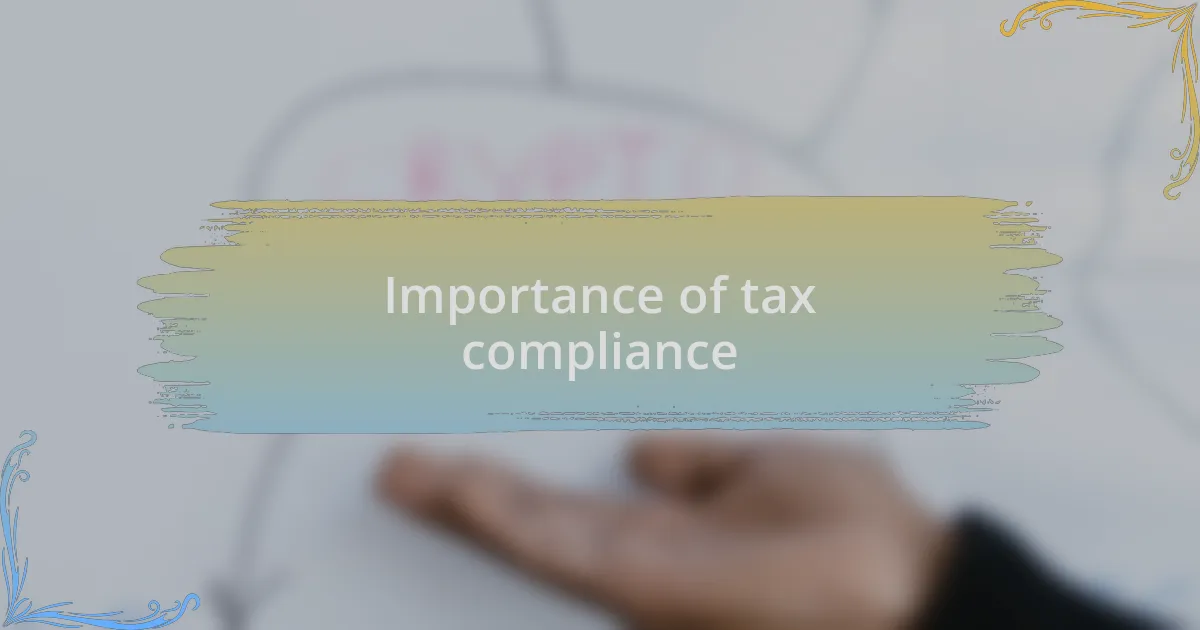Key takeaways:
- Understanding crypto tax obligations is essential to avoid penalties and ensure compliance with regulations.
- Proactive record-keeping and using reliable software can simplify the crypto tax preparation process.
- Teaching kids about crypto taxes can be made easier by relating concepts to familiar experiences, like trading games or tracking collectibles.
- Utilizing tools like wallet trackers and tax software can enhance efficiency in managing and reporting crypto transactions.

Understanding crypto tax preparation
When it comes to crypto tax preparation, understanding the basics is crucial. I remember the first time I had to deal with my taxes involving cryptocurrency; it was a mix of excitement and anxiety. How do I even start, I wondered? The truth is, education plays a massive role in simplifying the process.
Tax obligations for cryptocurrency can be intricate and vary depending on where you live. I once had a friend who thought he could just ignore reporting small transactions. Unfortunately, he learned the hard way that the IRS takes crypto seriously. This experience taught me the importance of being proactive and organized, especially when tracking gains and losses.
Using reliable software or consulting a tax professional can make a world of difference. I’ve found that proactive measures, like keeping records of my trades and understanding capital gains, have taken a lot of the stress out of tax season. Have you considered how the rise of cryptocurrencies might affect your own tax situation? Each transaction adds a layer of complexity, but approaching it with knowledge and preparation transforms a daunting task into something manageable.

Importance of tax compliance
Tax compliance in the world of cryptocurrency isn’t just about fulfilling legal obligations; it’s about safeguarding your financial future. When I first started trading, I was surprised by how serious the ramifications of non-compliance could be. I remember feeling overwhelmed, but I quickly realized that avoiding taxes could lead to significant penalties that far outweighed any gains I might have considered keeping under the radar.
Ignoring tax reporting on crypto transactions can haunt you in unexpected ways. A friend of mine thought he could simply categorize his losses as gambling losses. He didn’t anticipate the IRS would scrutinize his returns, which resulted in a lengthy audit process that caused him a lot of stress. From that experience, I learned that staying compliant not only protects you from financial troubles but also gives peace of mind that can be invaluable during tax season.
Being tax compliant in crypto isn’t just about paying what you owe; it’s about building a responsible financial habit. It’s important to remember that each trade, each gain, or loss impacts your tax situation. I’ve come to see tax time as an opportunity to reflect on my trading strategies rather than a burden. Have you thought about how your own tax compliance can shape your financial decisions? It’s a pivotal aspect that can influence your growth as a crypto investor.

Basics of cryptocurrency for kids
Understanding the basics of cryptocurrency is like opening a door to a whole new world for kids. It’s digital money, which means it exists only online and isn’t controlled by banks. I remember the first time I tried to explain it to my younger sibling; their eyes widened when I compared Bitcoin to digital stickers, something they were already familiar with and loved collecting.
At its core, think of cryptocurrency as a special kind of currency that allows people to trade goods and services over the internet. When I taught my friends about it, they were fascinated by how blockchain technology keeps all transactions secure and transparent. It’s a bit like writing in a notebook that everyone can see, making sure that everyone knows who owns what, which helps prevent cheating.
Kids can easily grasp how people can earn cryptocurrency by playing games or solving puzzles online. When I first learned about earning tokens from video games, it felt almost like unlocking achievements in a favorite game. Isn’t it exciting to think that with the right knowledge, they could turn a fun pastime into something that can actually hold value? Engaging with cryptocurrency as a concept opens up possibilities for financial literacy and creativity in an increasingly digital world.

Steps for teaching crypto taxes
Teaching kids about crypto taxes can feel daunting, but breaking it down into steps makes it manageable. I often start by explaining the concept of profits from crypto trading. When I first introduced the idea of “buy low, sell high” to my cousin, they could easily relate it to trading Pokémon cards. They loved that tangible example—understanding how gains work in a fun way made it feel less intimidating.
Next, I find it effective to go over their record-keeping as a crucial element of tax preparation. Using a simple spreadsheet to track purchases and sales can be a game-changer. I remember feeling overwhelmed by paperwork in my early days, but showing kids how to organize their transactions in a way that makes sense can lift that weight off their shoulders. Have you ever felt lost in a pile of receipts but found clarity when you made a list instead?
Finally, I emphasize the importance of deadlines and filing requirements. When I first missed a due date for my taxes, it was a lesson I won’t forget! I explain that staying informed about tax rules will help them avoid stressful situations later on. The key is to make it relatable and emphasize responsibility; after all, isn’t knowledge about managing finances a valuable skill for their future?
![]()
Tools for tracking crypto transactions
When it comes to tracking crypto transactions, several tools can make the process smoother. I personally have found that wallet trackers, like Blockfolio and Delta, consolidate all my holdings in one place, allowing me to see gains and losses at a glance. Have you ever wished for a magic dashboard that organizes everything for you? These apps do just that—I remember the relief of seeing my entire portfolio neatly displayed instead of sifting through transaction logs.
There are also specialized tax software solutions, such as CoinTracking and CryptoTrader.Tax, that help automate the process. The first time I used one, I was amazed at how quickly it generated tax reports from my trading history. Reflecting on that moment, I realized that technology can take a weight off our shoulders, making what once felt like an overwhelming task much simpler. Wouldn’t it be nice to turn a complex calculation into a few clicks?
Finally, some people benefit from APIs (Application Programming Interfaces) that connect different platforms for comprehensive tracking. In my experience, this has been a lifesaver when managing multiple exchanges. I used to manually input each transaction, which felt like an endless chore—now I just let the API handle it. Imagine the joy of reclaiming that time to focus on learning more about crypto instead!